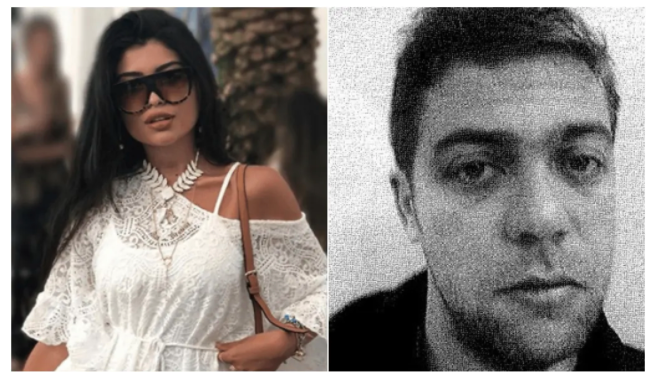
Brazilian digital influencer Mariana Ferrer claims she was raped in December 2018, during a party in a luxury beach club in Florianópolis, Santa Catarina. Mariana suspects she was drugged, and for that reason does not remember the details of what happened, however she states the act was not consensual. There is no doubt of the fact that sexual intercourse occurred, since the police found proof of penetration, ejaculation and rupture of the himen (Mariana was a virgin before the crime was committed). The accused perpetrator of the crime is entrepreneur André Aranha, who denies this was a case of rape. He also initially stated that only oral sex happened but then changed his version of the story, saying it was indeed sexual intercourse.
Given the seriousness of the alleged crime, as well as Mariana’s influence on social media, the case was undoubtedly taken to justice. Its judgement, which occurred earlier this month, November 2020, where André was absolved, created widespread revolt in Brazil. It was, however, a two-faceted case: despite its importance to showcase how sexism is still very present and real in society, users’ reactions to the judgement on social media demonstrated how people are extremely quick to repost information with no regard to actually researching its veracity.
The revolt on social media began on November 3rd, when the independent newspaper The Intercept Brasil posted an article with the following headline: “Judgement of influencer Mariana Ferrer’s case ends in unprecedented verdict of ‘unintantional rape’ and lawyer humiliates her”. Many of us might read this, be revolted at the fact that a man was absolved for comitting ‘unintantional rape’, and take on to social media to criticize it – and that’s what most people did. But the truth is, the newspaper grossly misinterpreted the judgement.
The argument of the defense was not that ‘unintantional rape’ ocurred, but that André could not have known that Mariana was in a state where she was unable to give consent, and therefore could not have intentionally raped her. In other words, since one of the required elements of the crime of rape is that the perpetrator continues with the sexual act despite the victim’s incapability of showing consent, and André couldn’t have known Mariana was incapable of consenting, he could not have intentionally raped her; since there’s no such thing as a crime of unintentional rape, the lawyer proceeded to argue, André is not guilty. Therefore, what was argued by the defense was not that André should be absolved because he comitted ‘unintentional rape’, as the article and everyone in social media was claiming, but rather that because unintentional rape does not exist, and (according to the defense), he did not intentionally rape Mariana, he could not be found guilty for such crime. Additionally, such line of argumentation by the defense wasn’t even the basis for the verdict. The judge absolved Aranha due to lack of evidence, since Mariana’s toxicological exam did not show consumption of alcohol or drugs, and therefore Aranha couldn’t have known that Mariana was incapable of consenting or not.
Most people, however, did not take the time to research the details of the case and its judgement, and being from Brazil, my Instagram’s timeline was absolutely filled with posts of people revolted at the (mistaken) fact that a man was absolved for comitting ‘uninentional rape’. The consequences of such a mistaken revolt are enormous. We need to stop thinking Instagram is a reliable news source and that reading a quick post and its description is enough. Being a victim of fake news is perhaps just as easy as being the one to spread it.
That does not mean, however, that there’s no reason for revolt regarding the case. The second half of The Intercept’s article title mentions how Mariana was completely humiliated by the defense’s lawyer, and that part is absolutely true. The article showed a video of the judgement, where Mariana was spoken to as a criminal, rather than a potential victim. On top of that, the lawyer used arguments as an attempt to ‘dismantle her image’ which had nothing to do with the case. The defense’s lawyer, Cláudio Gastão da Rosa Filho, showed sensual pictures posted on social media by Mariana before the alleged rape, when she was a professional model, and said such pictures were ‘gynecological’ – a clear reflex of society’s belief that what a woman wears, posts or does somehow justifies sexual abuse, or is proof of consent. As could be seen in the video of the hearing published by The Intercept Brasil, Filho also said he’d ‘never have a daughter’ at Mariana’s ‘level’, and stated that ‘her way to make money [referring to the rape accusations] was at the expense of another person’s disgrace’. Unfortunately, as stated by criminal lawyer Juliana Sa de Miranda, an attack to the victim is not uncommon in rape cases in Brazil. Miranda stated: “it’s common to try to deconstruct the image of the victim in cases of rape and sexual assault. They mention clothes, victim’s behavior, in an attempt to convince the judge that she consented to the act [of sexual inetrcourse].”. And the truth is, this was a case involving two influential people, which means for every case like Mariana’s which gains national media coverage, there are hundreds of others happening every day that no one knows about.
On top of that, although social media criticism of the case was mostly based on misinformation, almost all the posts demonstrating solidarity towards Mariana or criticizing the lawyer’s treatment towards her came from women. Out of the (literally) hundreds of posts I saw on my timeline about this case, ONE of them was from a male’s account. Considering that users tend to post about things when they inflict intense emotions (in this case outrage), does that mean men aren’t very revolted by rape cases?
The truth is that sexist culture is what leads to cases like this, and it must change immediately – there is no way to deny it. However, this case also showed how millions of people are willing to post things on social media without merely checking if they’re true. Who’s gonna take the fight for justice and equality seriously, if those fighting it don’t even really know what they’re fighting against? The consequences of spreading fake news like this may be inherently counterproductive to the fight for justice – if millions of people misinterpreted the judgement, somehow ‘harming’ Andre’s image, that is a strong weapon to the defence. That is why Mariana’s case shows how sexist culture is still very real, but oddly enough, it also shows what people should not do when fighting it. It is undeniable that social media has immense power in shaping people’s opinions, yet more often than not, pages post twisted versions of the truth in order to gain support for whatever cause they want to promote (or even just to gain attention). This is something that happens every second, and we are rarely conscious of it – let’s stop falling into that trap.
Sources:







Great article!